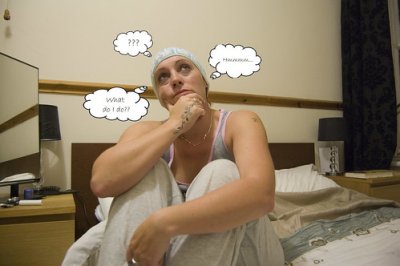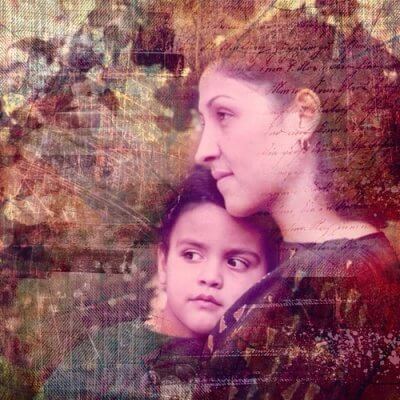Overanalyse Everything? Why You Have “Choice Paralysis”

By: Clare Black
by Andrea M. Darcy
Overanalyse everything, to the endless exasperation of your friends? And miss out on opportunity when you get ‘analysis paralysis’ and don’t make a decision?
Why do we overanalyse?
Some of us have stronger intellectual tendencies naturally. Or it can be a learned behaviour to be analytical, if we grew up with parents that put the focus on thinking and discussing.
Psychological issues that cause overanalysing
But, genetic inclination and comfort zone aside, overanalysing is often driven by psychological issues. What are these issues?
1. Anxiety.
Anxiety and overanalysing are sisters. The difference being that anxiety is overthinking gone completely illogic and fear-based. Even small questions or choices will kick off a flurry of troubleshooting — “How can I avoid danger and bad things happening?”.
2. Perfectionism.
Behind perfectionism is a fear of ‘getting it wrong’. The mind frantically overanalyses in an effort to avoid you being seen as a ‘failure‘.
3. Low self-esteem.
If we don’t have confidence in ourselves, we assume we will do things ‘bad’ and ‘wrong’. So we overanalyse everything in a desperate attempt to ‘not mess everything up again’.
Of course it tends to be a self fulfilling prophecy – low self-esteem is driven by strong and limiting core beliefs that then push us to constantly make bad choices.
Low self-esteem can also lead us to overanalyse as a backward way to get the attention we don’t think we deserve otherwise. If we always have a big ‘drama’ we have to endlessly run by others, it even makes us feel ‘interesting’.
4. Codependency.

By: Taymaz Valley
If we are codependent, every decision we face becomes a chance to win approval or be shunned. So we desperately overanalyse in order to please others.
How did I end up with ‘choice paralysis’?
Again, parenting comes into play. If your parents supported analysing as a positive way to lead life, you’ll be naturally more analytical.
But parenting can also drive us to overanalyse for negative reasons. Let’s look at how this works.
1. Critical parenting.
Were you always watched and told when you did things wrong? When you tried your best, were you told how you could do things even better?
Many of us internalise this critical voice of a parent into our own, and become adults with an inner soundtrack waiting and watching for us to mess up. No wonder we have analysis paralysis.
2. High expectations.
This can be the case with children identified as ‘gifted’ or ‘talented’. The entire family can see the child as the ‘saviour’, expecting them to grow up and make a mark, or make enough money to take care of everyone.
It’s too much pressure. As a child you can feel too responsible. And as an adult this feeling of responsibility can leak into a fear of letting others down with every decision you make… cue the overanalysing.
3. Helicopter parenting.
On the other end of the spectrum is a childhood where you didn’t make decisions at all. Your helicopter parent made all your decisions for you. As an adult you can just feel lost in the face of options, and get caught up in overthinking as decisions feel overwhelming.
4. Overly strict parenting.
Punished for making mistakes as a child? Particularly if you were physically punished, this can create a fear of decisions as an adult. Your brain will still go into fear mode.
5. Attention as a reward instead of right.
Attachment theory is a school of thought that believes that, in order to grow up into secure and confident adults, we need at least one caregiver, in our first seven years particularly, who we can trust to be there for us and love us matter what.

By: Pierre Tourigny
If we instead are faced with a caregiver who only gives us love if we are ‘good’ or ‘pleasing’? But ignores or belittles us otherwise? We end up indecisive adults with ‘anxious attachment‘, constantly worried we will not please others.
Trauma and the tendency to overanalyse
Did you experience trauma as a child? Or a generally traumatic, unstable childhood, with ‘adverse childhood experiences’ (ACE’s)?
Trauma leaves us with core beliefs that the world is a dangerous place. Without realising it, unless we seek help to process trauma, we spend our lives scanning for danger, threats, for things going wrong. This of course leads to overanalysing every situation.
Trauma also completely damages our capacity to trust not just others, but ourselves. Even though logically we know trauma is not our fault, we internalise it. If we allowed trauma to happen to us, how can we trust ourselves on anything?
And because trauma destroys trust, it can lead us to be obsessively independent. We have few if any connected, reliable relationships, do everything ourselves and make every decision ourselves.
It’s a huge amount of responsibility with little margin for error if there is no one else to pick up the slack. Is there any wonder each step in life is obsessively overanalysed for how it will or will not work?
How can I stop overanalysing everything?
Getting an idea your analysis paralysis is connected to much bigger issues? Overanalysing is not going to be an overnight process, but a committed journey.
There are many tools that can help you be more present with yourself and what you truly want. This can include journaling, mindfulness, and self-compassion.
But it also starts with looking at your hidden and limiting core beliefs. Deep down, do you believe that the world is a dangerous place? That you have to make the ‘right’ decisions as you can’t trust anyone else to be there for you? How true are these beliefs, really? What might be a more useful belief instead?
And we need to learn to trust. Not just others, and ourselves, but also life itself. We need to trust that that life isn’t always against us. That it isn’t us, all alone, against a strange negative force. That if we mess up, which inevitably we will do, it’s probably going to be okay.
Time to stop overanalysing and start living? We connect you with some of London’s best psychotherapists and counselling psychologists. Not in London? Our booking platform provides UK-wide registered therapists, or try online counselling from anywhere.
 Andrea M. Darcy is a mental health and wellbeing expert, who has done some training in person-centred counselling and coaching. She often writes about trauma, relationships, and ADHD, and advises people on how to plan their therapy journey. Find her on Instagram @am_darcy
Andrea M. Darcy is a mental health and wellbeing expert, who has done some training in person-centred counselling and coaching. She often writes about trauma, relationships, and ADHD, and advises people on how to plan their therapy journey. Find her on Instagram @am_darcy





Wow…this article describes me so well. It is actually chilling to see described here every psychological issue and every negative parenting that contributed to my analysis paralysis. Very hard to “reboot” the hard drive to transform this modus operandi into something more productive. I’m actually surprised that I’ve been raising 3 kids (now 20, 15 and 10), by myself and that they are emotionally stable and confident, able to make choices without suffering and happy with their decisions.
Hi EQ, actually that ‘harddrive’ might not be as hard to reboot as you think. For example, CBT therapy is short term, you don’t even have to talk much about the past, and it totally changes the way you think, which is a great start. And we are all more complicated as humans then whether or not we overanalyse. You might also have had positive childhood experiences that taught you to be, for example, resilient and resourceful and a good mother.